Blog Grid
- Home
- Blog Grid
Short Story: The Haunted Beach

Short Story: The Haunted Beach
Sun mercilessly beat down on the lone traveller. He had another name, given by his parents at the time of his birth, but he came to be known as Akbar. Buckler made of tough leather hide on his back, wearing chain-link armour and his shamsheer at his side, he walked from the port towards the nearby fishing village.
Debal was said to be the greatest port of this world and Akbar felt it wasn’t far off. He had seen great ports of Europe and of Ottoman lands, and Debal had its own charm. The road he walked on was well trodden, forests rising on both sides of the road. A cart laden with fish passed by and the driver, an old man with arms like barbed wire, stopped to give Akbar lift up to the village.
“What’s your name traveller?” The fisherman asked.
“Akbar” Traveller replied
“Your accent … you sound like desert dwellers across the sea. What brings you here?” Fisherman asked
“I hunt witches, and I am here for that purpose” Akbar replied.
Fisherman looked at him askance, noticing several rings adorned in Akbar’s fingers.
“Witches? Which ones do you mean?”
“The one who haunts the western beach.” Akbar replied.
Fisherman went silent. Akbar noticed his unease.
“Do not be afraid, I have spent two years hunting witches in Europe.” Akbar said. “The Duke hired a mercenary company which I was part of, and we killed nearly a hundred of them.”
“Do not speak of the evil,” Fisherman mumbled.
“I kill evil, and here to do just that,” Akbar said. “Where is this beach?”
The fisherman remained silent.
Akbar felt angry at his silence.
“I am here to liberate the land, will you not lend aid to the cause of just? Have you been bewitched by the evil?”
Fisherman looked up indignantly.
“You are young, and young men are foolish. You think your sword will kill a witch?”
“It has killed witches, a dozen of them”
“And how did you recognize a witch?” Fisherman asked.
“I have learned the ways of their trickeries. It is mine to know, no concern of yours.” Akbar replied.
The fisherman frowned and kept his eyes on the road.
The travelled in silence for a while until the village appeared.
The fisherman met the village council while Akbar sat under the shade of the large banyan tree. The council deliberated, then asked to hear Akbar’s objective. Akbar appeared in front of them, unarmed, and explained his witch hunting. The council members discussed amongst themselves, then the eldest member addressed Akbar.
“Traveller, you are not the first one to journey here for witch hunting. In past few years there have been many a fighters, some of them locals, who went to the western beach. None ever returned”
“I know of some of them” Akbar said. “Lohal, a member of my own mercenary group, left for witch hunting a month after witch hunting in Europe. He vanished in his witch hunt here. He knew very little, his ambitions too high. I am not naive like him.”
“Witches of Europe are not the same as witches found here. The witch plays games you can’t fathom.” the elder warned.
“They die the same way, elder one” Akbar replied.
The council members looked at each other, conceding defeat.
“No one goes to the western beach at sunset, the witch haunts the shore” Elder continued. “Our boys will take you close but beyond that the journey is yours. Know that you are warned, peril waits at the end.”
“I am willing to face it, just take me there” Akbar replied.
There was enough sunlight remaining, the days were long. A wagon was called that carried Akbar with 3 local boys, all armed, towards the western beach. It was a two hour journey which they made with little rest. The boys left him at the beginning of strange outcropping, trees bend at an awkward angle towards the shore, with food and fresh water for two days and turned back. Another wagon came from the other end and ran past him towards the village, no one seems to want to stay here with sunset approaching fast.
Akbar began walking, his hand on the hilt of his shamsheer. The road was made of hard rock, running parallel to the shore that was calm at this time. Cool air blew from the sea, saltish feel hung about. Most of the trees bent towards the sea. He kept walking as the sun approached the sea line, its light dimmed and sky slowly adopting shades of red.
A few steps later Akbar saw a figure standing at the beach. Tensed, he gripped his sword and moved fast towards it. The figures clothes blew in the air, black with streaks of red, and it kept looking towards the sea.
A few feet away Akbar dropped his supplies, drew out his shamsheer and gripped his buckler tightly.
“YOU, SHOW YOUR FACE” Akbar yelled.
The figure turned, startled. It was a woman, wearing traditional clothing of the fisherfolk. Bangles adorned her arms all the way to her elbow, sun-burned skin partially hidden by locks of her hair, big eyes looking at him in panic. She gasped at the sight of his sword.
“WHO ARE YOU?” Akbar yelled, advancing towards her. “NAME YOURSELF, WITCH”
The woman, clearly afraid of the sword, seemed offended.
“Witch? How dare you call one of the fisherfolk a witch? Who are you to walk here with foul accusations?”
“Your lies won’t affect me, witch” Akbar said. “No one walks here at sunset except evil.”
The woman seemed startled by that, then relief clearly flooded on her face.
“Oh, so have come finally. I was wondering when will you arrive.” Woman said, her tone calm and gentle.
Akbar felt surprise but he suppressed it.
“Yes, I am here to kill you witch”
The woman laughed. Her laugh was most musical, most genuine Akbar had ever heard. He stopped in his tracks, his eyes on her every move.
“Stop playing games, I know I am in your territory. I am here because I want you to kill me, so why the act?” Woman said with a smile.
“I am not a witch, you are” Akbar snarled. The woman smiled, this time gentleness reflecting in her eyes.
“I don’t care what you say, I know my time is up. He hasn’t returned, the sea has claimed him. Nothing remains for me in this world.” She turned away, facing towards the sea. There was longing on her face as she looked at the sea.
Akbar straightened. His grip on both shamsheer and buckler still tight.
“The witch of the lake played the same, and she had killed two men before I ran my sword through her. I won’t fall for your trick”
The woman seemed to have not heard him.
Akbar inched closer.
“What is the price of silence?” The woman asked.
“Your death” Akbar replied.
The woman faced him.
“And what price did you pay for your silence?”
“I have no price, witch” Akbar replied. She smiled.
“Why do you keep calling me witch? You can stop pretending”
“You are a witch”
“How? What proof do you have?”
“Your presence here”
“So are you, so who is the witch among us?”
Akbar snarled, then raised his shamsheer close to her face.
“Show your full face”
The woman pulled back her hair. Akbar looked for spots, the first indication of a witch. He didn’t find any.
“Show your arms” He said.
The woman began to slide bangles from her arms. With deft fingers she removed them in short time, both arms bare till the elbows. Compared to her face her arms were less sunburned and he spotted a mole on her wrist.
“THERE!” He indicated triumphantly. The woman seemed confused as she looked at it.
“A mole?” She asked. Akbar nodded. Woman raised her finger towards him.
“Then what about the mole on your neck?” She asked.
“I am a man, and men are never witches” Akbar said.
“But witches can take any form, is it not? Aren’t you taking the form of a man to play tricks?” The woman asked.
“Moles of the witches bleed, straighten your hand” Akbar commanded. She straightened his arm, the mole facing towards him.
Quick as lighting, Akbar jabbed the shamsheer point on the mole and raised it back at her face.
Nothing happened. The mole didn’t bleed.
He kept sending glances at her wrist as darkness began to make it difficult to see. He didn’t see any blood coming out.
“Now you, show if your mole bleeds or not” The woman asked calmly.
Akbar kept his sword arm up, retrieved his knife from his belt and jabbed the point at the mole on his neck.
He triumphantly looked at the woman … until he felt wet trickle down his neck.
The mole was bleeding.
Surprised, he nearly dropped his sword. The woman laughed.
“You witches are amusing. You come here to kill, and entertain before killing” She kept laughing.
“I AM NOT A WITCH” Akbar roared as he put a hand on his neck to stop the bleeding.
“Stop joking, the fun is over now. I am here to mourn and to submit. Just send me to him, I ask nothing more.” The woman said as she turned back towards the sea.
Akbar didn’t know what to say. He was startled by his own bleeding, and the witch didn’t attack nor did she bleed. Is she really a witch? Or is she a woman here to mourn, and die?
“Who are you? And why are you here?” Akbar asked, bringing the sword to his side.
“Someone who is here to mourn. I hear you witches kill painlessly. Suicide is not my way, so I hoped you would help” The woman said.
“I hunt witches, not a witch myself” Akbar said irritably. He put the shamsheer away. The blood flow seemed to have stopped.
“What will you do when you find the witch?” The woman asked. Akbar began wrapping the buckler back on his back.
“I’ll kill her when I do.” He replied.
Sadness pass through her face.
“So you are on a journey?” She asked
“I am.” Akbar replied.
“When our men go out on a journey, we tie a knot on their wrists. For good luck and safe return. If you truly aren’t a witch here to kill me, will you allow me to tie a knot on your wrist?”
Akbar stood motionless for a while. His indicators had failed, but he was a suspicious man. Still, there was no point in denying the woman when she proved she wasn’t a witch. He nodded his head.
The woman took out a thin black ribbon and approached him. He raised his right hand and she began to tie the knot. As she did, tears welled in her eyes and began to flow down her cheeks.
Akbar felt ashamed. Her emotion was genuine and he had assumed a woman to be a witch.
Once tied, the woman hid her face in her hands. Akbar felt emotionally drained, as if he just carried a mountain over his shoulders. She began to vigorously rub her face, attempting to clear the tears from her eyes and face.
Akbar sighed, raised his arms to tell her to calm down when she stopped rubbing her face and removed her hands.
Her face no longer had eyes nor nose, just a mouth with red lips turned into a wicked smile.
Akbar stopped dead in his position, feeling fear creeping up through his spine. The faceless woman began to laugh, an eerie sound that sent chills through bones. Akbar began to back away but his legs began to fail. He tried to grab his shamsheer with his right hand, but his wrist felt heavy as a boulder, fingers lifeless. He fell backwards as the faceless woman approached him, walking with the wicked laughter.
She stood above him, continuing with the laugh as consciousness escaped him and Akbar’s eyes closed as darkness completely encircled the sky.
Kings or Pawns – Review
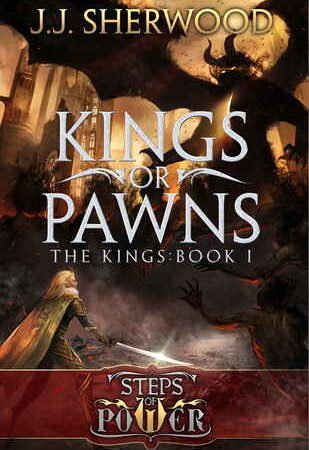
Kings or Pawns – Review
Kings or Pawns is the first novel in The Kings series by J.J. Sherwood. It is an epic fantasy novel that takes the reader to the same world created by Tolkien and spin it a different way. You have some of the same elements known for decades in the fantasy literature, most prominent of them all being the Elves … immortal, beautiful and wise. But that is where the similarities end.
I found the title of the book slightly ironic as I read through the story. Napoleon Bonaparte had said “We are either kings or pawns of men“, and I saw the same shade within the story. From the start we are introduced to the conflict brewing in the Elvish lands where paths of the elves separate, leading to differences that cause wars. It is such a war where we are introduced to an Elvish commander, his trusted captain and a young Elvish king facing off against an army they have been fighting against for a long, long time.
And this is where it gets ironic, because these Elves are not so different than humans. They are immortal, and they are beautiful, but there is a very significant human element to the way their society function. Political intrigues, whispers in the court, behavior which is raw (like humans) rather than one which is refined by centuries of thought and practice. If there were already humans in the story, the reader may have felt these were humans in the form of Elves … but that is not so and that is where the story stays strong.
The character development has been steady. The pace of the story varies; it speeds up during conflicts and slows down during conversations, personal reflections and experiences that adds to the depth of characters. The language has a modern tinge, not restricted to the shackled tone of the past but not so modern that the era begins to feel wrong or the authenticity of the characters is questioned.
Kings and Pawns is a good read for fans of epic fantasy fiction.
Book Review: Broken Triad

Book Review: Broken Triad
Published in 2013, Broken Triad – Storm of Assassins by Mohammed Qasim Mehdi is the latest epic fantasy/sci-fi crossover genre novel in contemporary English. It is probably the first such English novel from Pakistan that was written while the author was an undergraduate student at Lahore University of Management Sciences.
I have seen this before
The story has a deja vu quality to it. Katash, an elite assassin from the Guardian cadres of Senate and the People’s Republic, leads a team to kill a traitor and a group of powerful people of Autariates of Necroxium. Realizing that a certain secret has been spread, the team splits up to kill as many enemies they can before returning to their nation. On return journey Katash meets a boy Aeli, apprentice of a sage looking for his purpose in the world, and saves him from bandits. He takes him under his tutorship and goes to Grand Bazaar where Aeli makes a new friend Guli, bonds with a rare Shaheen Aeris and survives a mixup with the notorious Assassin of Assassins.
At the city of Alcadia Aeli begins to live with Katash and his mother and initiates training under Katash for admission to the elite Guardian College of Alcadia. The plot reveals the functioning of Aura, the demonic hordes of Autariates and Elves of Elforcium that play major role in plot after halfway through the story. The story is relatively simple, mostly from Aeli and Katash’s point of view, and several people and races (Elves, Dwarves, Torians etc) come into contact with Aeli once he reaches Grand Bazaar and then Alcadia.
The elements of the this plot are familiar. The way the story progresses, one can identify certain features that may have been inspired from existing fiction work such as Star Wars, Naruto, Eragon, Shaman King etc. The plot is a collection of inspiring incidents of famous works adapted for a single storyline. While interesting, the story itself is not very original even if it has some refreshing qualities.
Chunin Exams
Readers familiar with Naruto universe will either take a strong liking or strong disliking of Broken Triad. The combat system is highly similar to the Ninja fighting in Naruto, including summoning and forbidden arts, and evolution of wisps has similarities with both Pokemon and Flame of Recca. The entrance exam for Guardian College of Alcadia, patterned the same way as the famous Chunin Exams of Naruto, may as well been re-living of the Naruto’s exams rather than of Broken Triad.
The first fight of Aeli and Guli with two girls is similar to Beyblade’s competitions (Tyson and partners) as well as Shaman King (Asakura Yoh) who win their initial fights with ease. The subsequent fights that gets harder has strong resemblance to how the events of Chunin Exams last round progressed (El playing a role similar to Neji, Kung being a mixture of Gaara and Rock Lee etc) and evolution Aeli’s wisp is similar to Kurei’s flame evolution when it absorbs soul of Kurenai in Flame of Recca. The betrayal, the nations at war towards the end of exams and grand finish (Aeli against the demon Belial while Naruto against Gaara) are extremely similar.
Page 91
Katash began his lesson, “There are five levels of celestials. They are wisps, djinns, spirits, titans and phantoms. Wisps are pure energy, as they gain experience, they evolve into djinns. Other than wisps all the rest have unique shapes. Like Pyra is a spirit and takes the shape of a burning wolf. Celestials cannot be killed; when they are seriously wounded, they dissipate from real space (our universe) back into the phase space (A region were they come from) to heal themselves.”
The above dialogue shows inspiration from video games (of evolution by gaining experience) and returning of celestials to heal (Pokemon and Codex Alera).
Places are named in cliched way … Plaguis in Land of Plague, Skyris, Cholixian Desert … they are either twisted forms of existing names or conveniently named based on what the place is going through. Elves are inspired from Lord of the Rings movies and shown as quite condescending, dwarves as dwarves are in most fantasy novels (merchants and miners) and there is a hint of role playing games to the way events move (particularly Elder Scrolls V: Skyrim).
Katash is Sensei to Aeli, Assassin of Assassins is Tutor to his pupils and such are the actual namings of student-teacher relations in the novel. There is high penetration of electronic and futuristic weaponry (with no indication of how electricity is generated to run the electronic items) and fighting, while a crossover of Naruto and Shaman King, has elements of third person video game Devil May Cry 3 where fighters use swords as well as guns during combat. Some elements are yet to be explained, for example why would they still use “tube lights” as light source when they have futuristic weaponry like Plasma cannons and sophisticated robotics that merge with human neural system?
The historical background and political structures are detailed and covered thoroughly, though much of it feels unoriginal because of so much borrowing of elements from works and adjusting it within the story line.
A Journey of Discovery
The novel strongly focused on the journey to self discovery, even if that road is not so well planned out. Curiosity provides the trigger to most adventures, good or bad, that Aeli and Guli go through. Curiosity got both Aeli and Guli in trouble regarding the mysterious package, it nearly got them in trouble for eavesdropping on secret meeting and it brought them close to death a few times. This also sheds light on their growing friendship that begins in Grand Bazaar and sees them through the biggest fight of their lives.
Family and relations are another explored dimension where Katash’s mother is practically a Pakistani mother … lamenting the fact that Katash is 31 years old and unmarried, meaning she is still longing for the day when she will become a grandmother (and thus takes a liking to Aeli as a grandchild). Guli and El’s remembrance of their fallen family members (another similarity to Naruto universe), showing the side of military families in a society dominated by elite forces.
Immature
The characters are mostly bland, lacking distinctiveness and personalities. Of all the people that readers come across in the story, two stand out … the dwarf selling eagles and monkeys in Grand Bazaar and El, the granddaughter of head of Guardian order. They are both unique, have certain behavior that remained consistent, the dialogues correlate with their personalities and realistic approaches to the situation they find themselves into.
Aeli, despite being former apprentice of a sage, apparently shows no signs of any sage influence. Katash has been made a combination of Kakashi and Jiraiya (Naruto’s teachers), and a failed one at that. He neither shows any signs of being senior and most trusted guardian, he is immature as a teenager and clearly lacks foresight that people have after crossing the dreaded mark of 30 years.
Similarly many other characters show immature behavior and are constantly annoying. For example, during the raid at the start of the story when some people run away, one guardian asks:
“Some of them ran away Katash. What should we do?”
Seriously? Members of elite Guardian order and they don’t know what to do when some targets ran away? The scene certainly shows a group of fighters who are good at fighting but have no idea about planning and objectives … a far cry from what elite groups really are (and they don’t joke around or taunt “Ow. I am so scared” either while attacking a room full of enemies).
The Less Said, The Better
Dialogues and language are quite disappointing. There is a lot more “Telling” than “Showing”, leading to rather badly scripted monologues and explanations that one would rather skip than suffer through. The starting monologue of Lord of Plagia about the return of their master and destruction of their enemies is bad enough that die hard fantasy readers would smack their heads and dread how worse it would get.
The book is littered with grammatical errors and spelling mistakes, showing a lack of proper editorial work.
Conclusion
Broken Triad: Storm of Assassins is a refreshing initiation of cross-genre literature in Pakistan despite being a disappointing first book. Even though it is made up of mostly borrowed concepts, that doesn’t mean it lacks creativity. The story has some attraction and better character build up will surely take it to a whole new level. The journey is something similar to what “Eragon” went through and there is a clear indication that with some mentor-ship and training, the story can become 1000 times better than what it currently is. A re-write of this novel under professional guidance can even make it a globally accepted literature, if the author wishes to take that route.
Fire Boy – Review
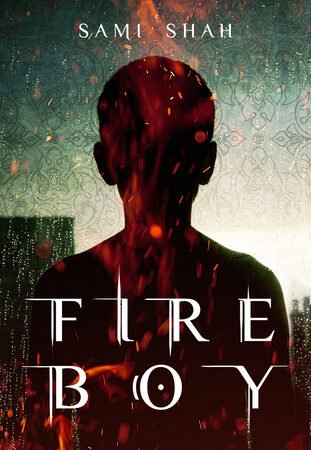
Fire Boy – Review
There are times when you come across a work of fiction that is authentic to the core and a breath of fresh air. Sami Shah’s ‘Fire Boy’ is one such work which is not only a pleasant surprise but also grounded to the folklore of subcontinent. The novel belongs to High Fantasy category where it explores the life of a young man named Wahid who doesn’t know he is half Djinn.
There have been works of fiction that tried to tackle the fabled Djinns of the Islamic belief system. Even Hollywood tried its hand with the movie ‘Jin’ with impressive graphics, but it failed to gain mainstream approval. Sami Shah dealt with various folklore elements, famous in this part of the world, expertly to really feel the moments of panic, wonder and even lust. Wahid, a person who is made of both clay and fire, is in search of Djinns when a powerful Djinn vanishes, taking away the soul of his love, Maheen.
The story explores Karachi’s underbelly when Wahid is suggested he may find his answer from the King of Karachi. He also gets to see the inside life of Abdullah Shah Ghazi’s Mazaar and spends time at the beach while hiding from the world. He experiences life of the ‘other side’ of the bridge, the areas that are not posh, and see how common man lives. In his search for Djinns he also find out their attraction to the sweets left behind in the sweetshops and he also comes face to face with the fabled witch of subcontinent … Pichal Pairi (twist foot).
The story has a smooth flow, starting from morning walk of a businessman and glides down the years as Wahid came into the world and grows up to be man of principles, strongly bonded with his two friends. His life represents typical experience of an O Levels kid who went to school, then tuition and spent quality time with his best buddies. And that life got upside down in a freak accident when he was attacked by two powerful Djinns.
The characters of Wahid, his friends, the love of his life Maheen and even some of the side characters are beautifully crafted, particularly a special Djinn that is introduced later in the story … one upon whom the doors of the fabled ‘Djinn’ world are closed.
From fantasy perspective Sami Shah may not have used eloquent language like Usman Tanveer Malik, whose depiction of Pakistan’s folklore has been recognized internationally, but has utilized the best storytelling narrative found in most modern fantasy stories. One cannot feel the difference between the narrative of Fire Boy and those of bestsellers of Fantasy genre. Being a plot driven story it is as engaging as any good fantasy book out there, some of which are even mentioned in Sami’s work since Wahid has a lot of interest in reading fantasy novels. One cannot help but wonder if Sami Shah modeled Wahid’s personality based on his own reading habits. I have personally never seen any local author mentioning Dungeons & Dragons board games, a favorite of every fantasy addict around the globe, and Wahid is shown playing it for years with his best buddies.
Fire Boy is definitely worth the read and is recommended even if you don’t really like fantasy. The alternate take on Djinns and Karachi’s folk lore is enough to attract both fantasy readers and realist ones alike.
One Law to Imprison Them All

One Law to Imprison Them All
Ever come across a funny meme of politicians as kids? Adorable, right? You might even feel like sharing it on Facebook, Twitter, WhatsApp, or your blog.
But under Pakistan’s proposed Cyber Crime Bill (2015), doing so could land you in jail for up to 2 years and/or fined Rs. 1 million. Why? Because the image could be labeled vulgar or offensive, especially if it features political figures—and that’s enough to trigger a cyberstalking charge.
Let that sink in.
What Qualifies as a Punishable Offense?
This bill is as alarming as SOPA and PIPA once proposed in the U.S., and even more ambiguous in interpretation. Here’s what could get you in trouble:
- Using or hinting at cuss words: “Yaar tum kitnay @#%$ ho!”
- Making suggestive or cheesy proposals: “Kia aap mujh se frandship karein gi?”
- Threatening or venting in frustration: “Agar internet theek nahi chala, to Wateen walon ka sar phar doon ga!”
The bill doesn’t clearly define what qualifies as “vulgar” or “obscene,” leaving it wide open to interpretation. Even harmless political satire or comedy programs like Hum Sab Umeed Se Hain could be considered punishable content. Other ambiguous phrases that could potentially be labeled “vulgar”:
- A Womanly Man
- While Thatta Suffers Famine
- Cat’s Out of the Bag
The Inspiration? Think Dolores Umbridge
This bill reads like something straight out of Harry Potter—specifically the oppressive rules enforced by Dolores Umbridge and her Inquisitorial Squad. It applies to any device capable of processing data: laptops, mobiles, tablets, telecom equipment, even pagers.
Authorities would have the power to confiscate your device for 90 days—without needing to justify the action. That innocent meme saved in your WhatsApp gallery? Enough for a cyberstalking conviction. A blog post? Your website can be permanently blocked by PTA.
Got an Event Invite or Survey Request?
Ever sent out a thesis survey, event invite, or game request (Farmville, Candy Crush, etc.)?
Congratulations—you could be booked for spamming, which carries a penalty of 3 months in jail and/or Rs. 1 million fine.
Why? Because under the new bill, unless you’ve received explicit written permission from each recipient, you’re violating the law. Yes, even on Facebook or via text.
Blocking Content for the “Glory of Islam”
Let’s say you post a controversial image, like a meme critiquing extremism or referencing a banned book like The Satanic Verses. Under the new bill, an investigation officer can instruct PTA to block your website, citing “Glory of Islam” or the “Security of Pakistan” as justifications.
Freedom of expression? Not anymore.
Have Home WiFi? You’re a Service Provider Now
If you’re running a WiFi connection—whether at a café or in your own home—you could be considered a “service provider” under this bill. You’d be required to store traffic logs for up to 90 days.
Failing to do so? That’s a 6-month jail sentence or a fine.
Say Hello to “Cyber Terrorism”
Ever ranted online about slow internet speeds, threatening to “chop off” your ISP’s head? That could be defined as Cyber Terrorism—especially if it’s seen as inciting violence.
Even media outlets covering political scandals may fall under this clause, since they can be accused of spreading content that “incites hatred or violence.”
And the punishment? Up to 14 years in prison and/or a fine of Rs. 50 million (5 crore).
Silencing Dissent, One Law at a Time
This bill is set to be presented in Pakistan’s parliament and may be rushed through under the cover of the Pakistan Protection Act. If passed, it will not only restrict freedom of speech and digital expression—it could also become a tool for election-time censorship. Sharing evidence of rigging or speaking against authorities could be interpreted as attempting to “malign” or “disseminate false information.”
What You Can Do
Bolo Bhi has shared a copy of the proposed bill along with their initial analysis. Review them and raise your voice.
Contact parliamentarians, media professionals, and public influencers. Use your platforms—Facebook, Twitter, blogs—to inform others about the dangerous implications of this bill.
This is not just a legal reform—it’s a serious threat to digital freedom in Pakistan.
Book Review: Last of the Tasburai
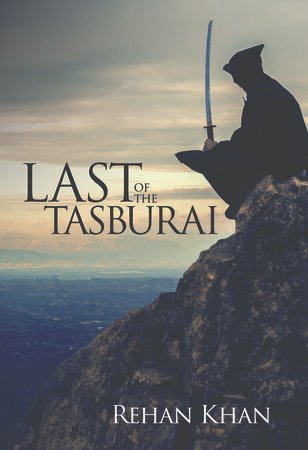
Book Review: Last of the Tasburai
First published in 2014, Last of the Tasburai by Rehan Khan is an epic fantasy novel that combines sword fighting and combat tactics of Samurai with the teachings of Sufi mystics. Tasburai, an order of warriors with near-holy purpose, have now become a tool of oppression under tyrannical regime of Avanist Republic.
Nicely Woven Narrative
The story begins with a young apprentice Adan following criminals and catching them finally. The ensuing fight was later joined by Tasburai grand masters Naram-Sin and Suri-Yi where they capture a man wearing metal mask and take him to Oblivion, the dreaded prison of the Avanist Republic. At the same time Ylva, a free-spirited young thief belonging to a large family with Robin Hood’s idea of justice, led defenders of Kronnoburg on a merry chase until deliberately giving up and getting caught.
The subsequent events give the readers insight to the corruption within Tasburai order, the crumbling of Kronnoburg’s ruling elite and pathetic defense, the imperialistic designs of Avanist Republic and valiant efforts of handful of people to avert the upcoming disaster … the return of Magrog. The narrative flow is fluent and story doesn’t break or lead to confusing side stories, allowing the reader to fully enjoy the book which is paced nicely as well. There is nothing out of the box, rather scientifically well crafted story with all the necessary elements, cliff hangers and twists. Good guys going bad, politics and deception, heroic rescue, honor and sacrifice, new world order … all can be found in the book.
Well Developed World
From the walls of Kronnoburg to the dungeon of Avanist, the world in Last of the Tasburai is well built for immersive reading. Although not much descriptive, it is well placed to give a sense of importance and allow readers to imagine it for themselves. That, however, is also a cause of concern because their is a lack of scalability for the reader to compare. How exactly thick are the walls of Kronnoburg, there is no size given or comparison made. Similarly it is often tough to feel how big a place is or how long the boat is to carry so many people.
The areas around the place, such as Duria, need more details. Some of the naming is also borrowed that slightly puts the world off-balance. One part of the world is clearly Roman, another is Indian while the rest is imagined. Avanist, Krokonite, Kronnoburg are all in close vicinity of each other and such strikingly different names do not add up from cultural and linguistic point of view.
Another problem with this world is that barely a generation has passed since the previous war with Magrog. Many people from previous war are still alive such as Suri-Yi, Narem-Sin, Olaf the Generous etc. Within 30 years people do not forget everything. Soldiers don’t lose their fighting abilities completely but near survival makes them appreciate good warrior skills and discipline combat (both completely missing from Kronnoburg that was the center of fight against Magrog). Scary creatures like Xettin and Ifreet do not become fairy tales to scare children especially when people fought them just a couple of decades back. The timeline being explored in the story has these loopholes that make behavior of the current generation quite unrealistic.
Deception, Corruption, Destruction
The corruption within Tasburai order and emergence of more hardliners, the Hawarij, shows the downfall of tolerance and rise of those who lack compassion. The more worldly resemblance can be made with the slow erosion of Sufism and rise of militant Islam in the form of ISIS/Taliban, leading to intolerance seeping within the world that lead to great catastrophes.
The disintegration of morals, as in the case of Kronnoburg’s royalty as well as fighting cadres, also shows downfall of those who forget their past and have no sense of future. This leaves them wide open for not only deception from outside but incompetence from within, losing half the battle before it even begins.
The novel also explores the concepts of Good vs Evil, such as the Good Tasburai and the Bad Tasburai (Demon Blood that takes hold), the Xettin who kill anything that moves, Ifreet that burn their enemies, Magrog that destroy every living form in their way and humans that defend their very existence. Old friends are now enemies and some people that never change. The novel also explores the age-old split personality, often used in both psychological and fantasy/sci-fi genres, where Adan is possessed by alter-ego that loves killing.
Diversity of People
The characters are diverse and both genders are found in strong roles in the novel. Suri-Yi is certainly one of the fiercest fighters in the Tasburai order and as the story progress, her past begins to unravel and she becomes a more real person than the teacher she is. Adan similarly grows but not much compared to Suri-Yi, Princess Elsta and Rikart Navrose. He remains stagnant most of the story until dilemmas begin to grip him and he has to denounce his teacher.
Olaf the Generous is one of the most genuine characters of the novel who steals from the rich and distribute it to the poor. Ylva, his daughter, is similarly well crafted that has taken after him. Adan’s motivation to be the best Tasburai, Naram-Sin’s to bring in new world order and Princess Elsta’s to be the perfect Queen who is married to the perfect King are all realistically crafted.
Book Launch – The Room in the Mausoleum

Book Launch – The Room in the Mausoleum
Sheba Sultan and Rabeya Ali Faridi launched their book “The Room in the Mausoleum” at Karachi Arts Council on 17th March 2015. A collection of 7 short stories, the two authors have shared life experiences from diverse point of views. The launch was attended by around 100 people and an esteemed panel of speakers was lined up for the occasion.
Heena Jadav Sunil, author of Equinox trilogy, was the first speaker to take the podium and talk about how much the stories were written from the heart. Bishop (Rt. Rev.) Sadiq Daniel also commended the young authors and congratulated them for taking such a major step in their lives.
IBA professor Yaseen Ahmed Minai spoke about the importance of writing and telling stories, the power of observation and strength of youth to change nation’s future with their words. Haseena Moin shared her experience, much to the amusement of all in attendance, where she had lost the book and had Sheba read her the stories over the phone before coming to attend the launch. Other speakers, most prominent being Sehar Ansari, shared their experiences and stressed the importance of this achievement by the young writers.
The book has been published by Academy Bazyaft. For details about book purchase, contact Sheba Sultan on her Facebook profile or her Twitter handle @ShebaSultan.
An Isolated Incident – Review
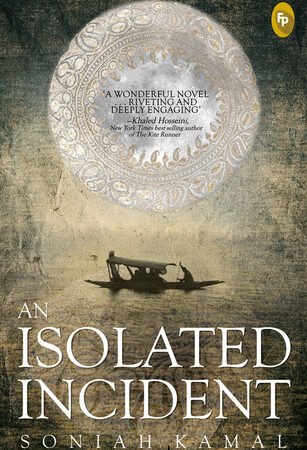
An Isolated Incident – Review
Published in 2014, An Isolated Incident by Soniah Kamal is an English novel with incredible depth about the lives of Kashmiris, both inside Kashmir and outside, and how their plight is forgotten in the tussle between between India and Pakistan for the region. The story takes place during the 90s in Kashmir, Pakistan, Afghanistan and USA.
Synopsis
Zari Zoon, a vivacious girl from Kashmir, is looking forward to marrying her fiance when tragedy strikes. Next thing she know, she is on a plane to America to stay with distant relatives who have offered to give her a temporary home to help her stitch back the tatters of her life.
Billy Nabi, fiercely tender-hearted, longs to help Zari but the choices he makes will jeopardize them all. An Isolated Incident is a story of haunting memories and yearnings of a home lost, of a faith continuously tested and questioned and of a love that blossoms against all odds.
Bliss Vs Knowledge
18 year old Zari Zoon is living with family in IoK (Indian Occupied Kashmir) where her sister Kiran comes to visit, bringing her son Baz as well, from Dubai. Zari remembers a time when she could move around freely, but now military and police are everywhere and it’s no longer safe. Her best friend Sonea often visits and share both good and bad times. Zari’s family gets a surprise visit during the night where they are bundled into a room by freedom fighters who leave in the morning. Few days later, when Zari’s fiance Imran comes for a visit from Australia, unknown men murder the whole family (including Imran and Sonea) and gang rape Zari.
She survives, carrying a bullet wound and lifetime’s worth of terrifying memories. She goes to her aunt’s place in Rawalpindi, Pakistan but doesn’t find peace. Finally, she is sent to distant relations place in USA, the Nabis. Amman and Shahla are very accommodating Kashmiri couple who take Zari in until she heals. Their own children, Billal and Salsabil, are close to Zari’s age with an American lifestyle; but while Billal is brooding for being denied the history of Nabi family back in Kashmir, Salsabil has wholeheartedly embraced American life. The youngest sibling is Miraag, 4 year old who reminds Zari of her nephew Baz.
The story primarily follows Zari’s perspective until she reaches USA and from there it switches between Zari and the Nabis’ a lot. Billal and Zari are the protagonist of the story, each with a history in Kashmir, and Billal tries to find that which Zari is trying to forget. Zari has memories … memories so painful she has to cut herself to bear; memories she wants to forget and get over. Billal has a peaceful life but he wants to know the truth that he is being kept from by his parents Amman and Shehla … the truth about his freedom fighter grandfather Abdullah Nabi. This ultimately takes him to Kashmir to train with the Mujahideen and the whole experience is affected by global relations between various nations.
Attention to details
Be it Kashmir, Pakistan, Afghanistan or USA, the author has clearly made efforts to make the description as realistic as possible. From Zari’s encounter with Indian army men to cultural shock in US, all have been incorporated effortlessly in the narrative. Not just the physical aspect but also philosophical, psychological, cultural and geo political elements strongly enhance the story. The following passage about freedom fighters give a good idea about author’s command over these elements:
Page 27:
She watched through the window as the intruders, having stuffed themselves with breakfast, and packed the leftovers, walked out the driveway and disappeared into the morning mist as if they were college boys stooped with books and thoughts and not weapons and a cause. Militants. Guerrillas. Insurgents. Freedom Fighters. Zari didn’t even know what to call them anymore. She remembered a time when they’d invoke safety, not terror. A time when they’d genuinely belonged to Kashmir, when they had been indigenous fighters and not men overtaken by foreign forces with agendas of their own to push. Now their knocks – whether in a remote village or in her upper-middle-class neighborhood – were met with curses and their forced recruitment with suicides. No one knew which group was knocking, native or outsides, asli or naqli, real or impostor. Which group will shoot you for sheer practice, sheer sport, sheer rage at someone or some other situation that the laws of transference had delivered to your door.
These fighters, once rising to fix what was broken in the land, now a part of the shards themselves, breaking apart as they were into different groups fighting for supremacy amongst themselves; some pro-independence, some pro-Pakistan, some under the Indian government’s counter insurgency payroll, and some neither for nor against, just that it felt good to be powerful, thanks to the gun in their hands, the gun that enabled them to bleed each other for different goals although the end results were identical: injecting misery into the lives of ordinary Kashimri citizens.
While story in Pakistan is not that descriptive, the feel of the land and culture is good. It is rather unclear how Zari reaches Pakistan. Kashmir and USA have been described in detail and the culture of both locations oozes from the pages as the author illustrates the neighborhoods, shops, people, behavior, relations and expectations. Lifestyle is similarly covered and an illustration on media’s role provides stark image how narrative is affected the way things are described:
Page 228:
Billy sat absolutely still. If he moved, he would fall. If he looked at anyone’s face, he would crack. If he allowed himself to crack, he would die. Everyone rose for the last prayers of the day and Billy rose too, stumbling through the prayers, through the words, the motions. Nothing virulent had ever been shown at any meeting back home and even the media made sure that death and destruction were cleansed of guts and gore. A fence lined with teddy bears and ribbons and flowers represented hit and run. Shocked neighbors represented the body of a murder victim. A camera panning the outside of a house represented the lair of a serial killer. War, too, was sanitised. Soldiers returned in flag-draped coffins, while battlefields were marked with cenotaphs and bereft relatives looking away from the camera into sombre skies. Nothing like this continuous footage of carnage Billy has just been force fed.
These, and many such passages throughout the novel, exemplify the realities touched upon time and again to make sense of the world Zari and Billal were now living in. Most of these are brutally honest, holding wide spectrum of realities threaded through conflicting cultures and making sense of a mess that otherwise eludes the common person. One example is Fahad’s family when they visit Zari and bring their grandmother along. The authority of grandmother, how her approval of Zari despite knowing her background, leaves the family powerless despite an American upbringing.
Some of the areas were not so well detailed. A particular example that stands out is Billal’s trip from Peshawar into Afghanistan. Although vivid, the description of his journey lacked the x-factor which is apparent in other description of other areas.
Since the story takes place in the 90s, at one point Salsabil asks Zari to email her the grocery list. Although email systems such as Yahoo and Hotmail were becoming common, it is unclear if it was part of lifestyle to regularly check emails at work. Also, right after emailing the list, Zari searches “Rape” terms and is disgusted by the results and images she finds. It should be noted that during 90s the search engine frequently used was Yahoo and porn or rape fantasies was not something easily available over the internet. How Zari easily find them (and which search engine she used) is not explained.
Nationhood – Safety – Irrational Love
Kashmir is the central point in this novel. The love for the land and for the people has led people in various directions. It is a source of pride, nationhood as well as irrational love. Zari’s father loved the land so much it bordered on madness, and that irrational love ended up with the death of the Zoon family. Mauj Ji (sister of Amman’s father) loved the land irrationally, her own life ruined as a result. Nearly every Kashmiri experienced irrational love of one kind or the other.
Pain, loss, suffering dominate the lives of Kashmiris living in Kashmir and painful memories for those who migrated abroad. Those who moved abroad settled for a life of peace and safety, a far cry from their experiences back home. Amman’s description argument aptly sums it up:
Page 173:
“Nullify differences, ignore them, celebrate them, find a balance … this is the new trick the old dog must learn if it is not to blow itself up. I just do not believe that breaking countries up on communal or religious or ethnic lines will lead to the ultimate happiness of all those involved. I like to believe that diverse people can live together as long as law and order and justice are meted out equally. But then again,” Amman said, “I live in the United States of America; I must believe in this.”
In similar fashion Amman also deals with realities of life where idealism fails:
Page 174:
“Let me tell you!” Amman sat up. “The end of insurgency does not necessarily means a government better than the one being resisted. It does not mean an end to the bribery and corruption that are rampant in state systems; it does not mean the institution of measures to reign in poverty, or programs to teach ex-freedom fighters a profession. Instead, these unsung ‘heroes’, as I am sure you’d like to call them, are left high and dry with no education and no practical skills to support themselves and their families in the new world with its changed order. Eventually, these discontented men either turn to overthrowing the very establishment they helped put into place or else, they turn to crime because crime pays better than some menial, back-breaking, reward-less job.
“Look at me Billal,” Amman stares into Billy’s eyes. “Freedom fighters don’t get medals, they don’t get any honours. My mother made sure I understand that, and I will make sure you do too before you get caught up in romancing an exaggerated idealisation of a lie.”
Strong feelings and emotions about loss are expressed at various points and they are not limited to Kashmir alone. At one place when Shehla’s brother and his wife Barbara come to stay for a few days, Zari inquires about the loss of Barbara’s son to which she replies in heart-felt words:
Page 287:
“Children whose parents die are called orphans, but there is no such word for parents who have lost their children. Omissions like that used to frighten me. As if the world was Godless just because my language was incomplete.”
Kashmiris to the core
Most of the characters in the novel are Kashmiris, though there are sizeable number of non-Kashmiri people the reader comes across. They all share a sense of longing and belonging, cultural confusion, search for peace and safety, camaraderie and a sense of loss that has evolved with the passage of time. The people are very real with problems, aspirations, queries, opinions and stigmas.
Zari is a broken orphan girl trying to mend itself in a foreign land and culture. Billal is in love with the idea of freedom and freedom fighters. Amman has blocked out previous life in order to peacefully live in the USA. Shehla does not want her children to suffer what she and her elders suffered. Salsabil is practical and bold person who doesn’t skip a beat to call spade a spade. Various other people they interact with have their own lives and motivations and they have been meticulously described.
Amman’s character, one of the major characters, is fleshed out after nearly half the book is done. Compared to others he really has an interesting past that lends credence to his current behavior as a father and son of a freedom fighter.
Most of the perspective is through Zari eyes while Billal’s life takes dominance for the last quarter of the novel. We also get to see the world through Shehla and Amman’s perspective though not for long periods. At some places, sometimes within the same paragraph, the perspective shifts between the characters and it requires a double take to make sure which character are we looking through.
Blunt and Honest
Soniah Kamal has used simple and straight forward words to describe incidents and events, involving the reader with whatever was happening in the story. Where ideas and philosophy was used, there is a complete absence of flowery language. The words are used with brutal honesty, hitting the nail on the head at every turn. Words of Urdu as well as Kashmiri are incorporated efficiently within the narrative without breaking the flow and are followed by their meanings.
Cultural references are skilfully placed, proving the author’s knowledge and understanding of various places. The dialogues are well crafted and words spoken are authentic enough to highlight general mindset of the character. Salsabil was blunt, Billal too idealistic, Shehla being practical, Zari quite introverted and Amman conflicted.
Final Verdict
This is the first novel on Kashmir that is capable of irking everyone around the line-of-control, be they Pakistanis, Indians or Kashmiris. Perhaps there in lies the path to better understand each other. An Isolated Incident is not so isolated as it covers lives of Kashmiris across the globe. Albeit slow, it’s a must read novel to better understand the plight of Kashmir and Kashmiris.
Democracy Review
![Democracy-by-Fatima-Bhutto[1]](https://digitalsaeen.com/wp-content/uploads/2025/03/Democracy-by-Fatima-Bhutto1-601x450.jpg)
Democracy Review
Published on 14th February 2015, Democracy by Fatima Bhutto is a short fiction set in the 90s when military coup overturned civilian government. It’s a fictional reenactment of Nawaz Sharif’s infamous folly of sacking Musharraf mid-flight and nearly getting him killed.
Infidelity and Hijacking
The story follows life of Brigadier Azad who was enjoying swimming in Sindh Club while waiting for his mistress Sharmilla, and a caravan of military vehicles under Major Jamshed arrive with emergency orders. Azad leaves to immediately secure the airport for plane’s landing while a drunk Sharmilla is news casting on national television.
Karachi of the 90s
There is a distinctive feel of 90s Karachi as the events progress, though the speed of the story and clear lack of background information causes confusion in what decade the story is set in. Airport, Sindh Club and PTV headquarters are the primary places the story takes place and their descriptions have been lightly touched. At one point the author says the capital must be now secured by 118 Brigade. It is unclear if the brigade was deliberately called 118 and not the real 111 Infantry Brigade stationed at the capital.
Infidelity (mostly)
Apart from Honor to serve their “True” Army Chief rather than the one imposed on them so suddenly, infidelity is dominant theme of the story where Brigadier Azad is keeping himself unavailable to his wife Kiran while trying to find every reason to be with Sharmilla. Throughout the whole story he is worried about missing his date with her and thinking about ways to make up for it in the next few days, unaware of her own doings until he sees her on television drunkenly reading the news.
Crisp Language, Worldly People
Most characters seems to be following their instincts. Major Jamshed, trying to avoid becoming an imposter like his father under Zia; Kiran, screaming to look for her husband; Brigadier Azad, worried about both securing airport and pleasing his mistress; Sharmilla, trying not to look so drunk while reading the news to the applause of politicians. There are some formatting issues and script errors, such as “its tyres” written as “itstyres” which are aplenty for a fiction of such short length.
Final Verdict
Democracy is an interesting but pointless fiction on the 90s coup. It seems to be a writing exercise that was published as an afterthought rather than a real work of fiction as it ought to be.



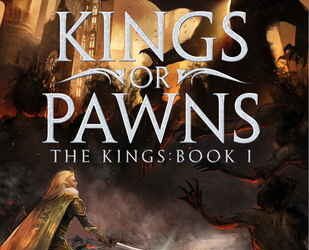

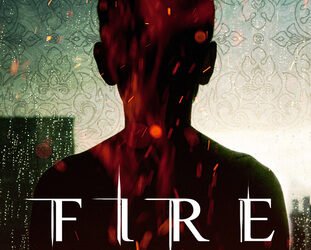


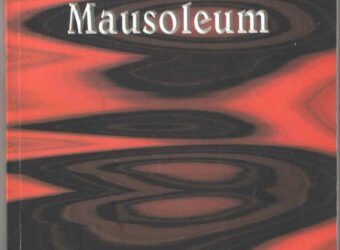
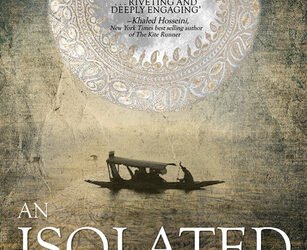
![Democracy-by-Fatima-Bhutto[1]](https://digitalsaeen.com/wp-content/uploads/2025/03/Democracy-by-Fatima-Bhutto1-340x250.jpg)